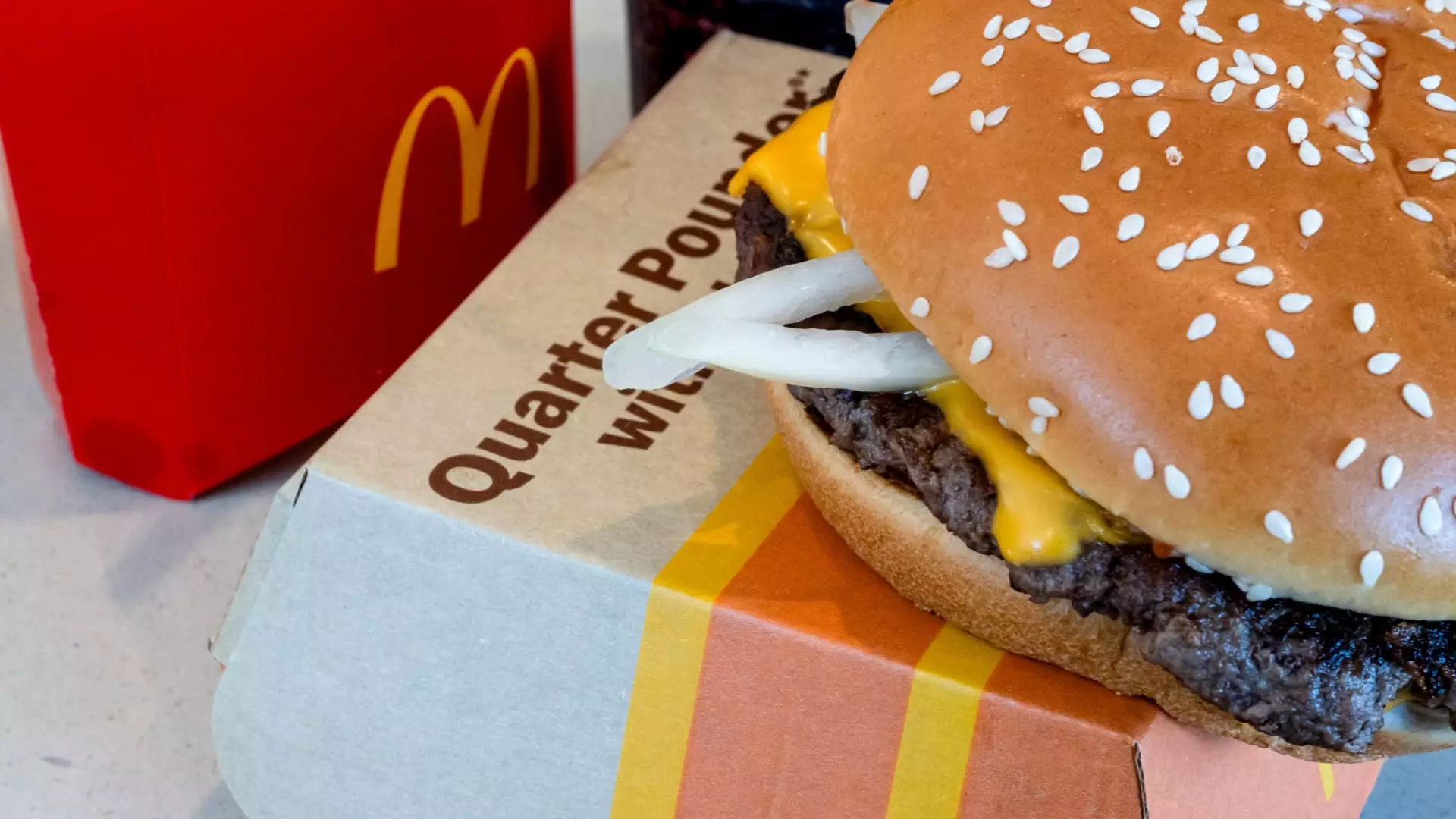The E. coli Outbreak: A Stark Reminder for Fast Food Chains and Consumer Safety

In recent weeks, the fast-food giant McDonald’s has been in the eye of a storm following a deadly E. coli outbreak linked to its popular Quarter Pounder burgers. This incident has raised numerous questions about food safety practices, responsibility in the food service industry, and the potential implications for both consumers and shareholders. The emergence of at least 75 reported cases in 13 states, compounded by extensive investigations by the Centers for Disease Control and Prevention (CDC), highlights the vulnerabilities inherent in our food systems.
According to the CDC, as of Friday, the outbreak has resulted in 22 hospitalizations and one confirmed death in Colorado, indicating the severe consequences of this bacterial infection. E. coli, known for causing gastrointestinal distress, can lead to more severe conditions, such as hemolytic uremic syndrome, which is characterized by kidney failure. As the CDC reports that the infected patients range from ages 13 to 88, it becomes apparent that no demographic is immune to the effects of this outbreak. Importantly, the agency acknowledges that these numbers may represent just the tip of the iceberg, as many individuals may not undergo testing for E. coli, thus eluding detection and reporting.
The ripple effects of this outbreak have already impacted McDonald’s stock performance. Following the CDC’s announcements, shares of the company fell by 2%, with an overall decrease of 6% since the outbreak was first reported. This downturn speaks not only to investor confidence but also mirrors consumer apprehension regarding food safety at one of America’s most recognizable brands. Shares in restaurants are often correlated with their public image, particularly when health-related concerns arise.
Health officials are currently eyeing the slivered onions commonly used in the Quarter Pounders as a potential source of contamination. McDonald’s has taken immediate action, ordering restaurants in affected areas to cease using this ingredient and halting distribution temporarily. This rapid response is crucial for controlling the outbreak, yet it raises questions about the robustness of the supply chain and the food safety protocols in place.
In an interconnected industry, the repercussions are being felt beyond McDonald’s. Other restaurant chains such as Burger King, KFC, and Taco Bell have taken precautionary measures of their own by pulling onions from select locations. This widespread reaction demonstrates the competitive nature of the fast-food industry—where one brand’s crisis can quickly serve as a cautionary tale for others.
In light of the outbreak, McDonald’s faces a dual challenge: ensuring public confidence in their food safety standards while addressing potential impacts on their sales and market performance. With around a fifth of McDonald’s U.S. outlets not selling Quarter Pounders, the brand risks alienating loyal customers who regularly choose this iconic menu item. However, the company’s spokesperson has indicated that it is “too early” to assess any drastic impacts on customer traffic.
As the company gears up to report its third-quarter earnings, investors will be closely monitoring how this health crisis affects overall performance. Analysts predict a modest growth in same-store sales, yet the enduring impact of the outbreak remains uncertain. The historical context of E. coli outbreaks suggests that short-term effects on brand perception may dissipate, but only if the company demonstrates a commitment to transparency and safety in recovery efforts.
This incident underscores the ongoing challenges that the food service industry faces regarding consumer health. As fast food continues to be a staple in many American diets, it is paramount that companies prioritize rigorous safety standards. Consumers should remain vigilant about where their food comes from and the potential risks associated with it.
Furthermore, the situation calls for more robust national food safety regulations and the assurance of stringent quality checks in the supply chain. With outbreaks like this one drawing national attention, health officials, consumers, and the industries must come together to foster a food system that is not only profitable but also safe and reliable.
As the dust settles on this outbreak, one thing is clear: the relationship between consumer trust and food safety is paramount. For McDonald’s, proactive measures and transparent communication will be vital to overcoming this challenge and restoring confidence in their brand. The focus must now shift to ensuring that such incidents do not repeat, reminding the entire industry that health and safety should always take precedence over profit.





